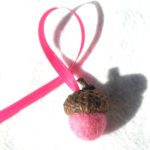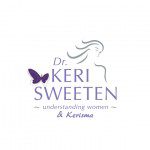 October officially marks Breast Cancer Awareness month, and if you do nothing else but “touch your ta-ta’s” (that would be do a breast self-exam) this month, you will have done a good thing!
October officially marks Breast Cancer Awareness month, and if you do nothing else but “touch your ta-ta’s” (that would be do a breast self-exam) this month, you will have done a good thing!
So you may be thinking…”No one in my family has had breast cancer, no need to worry!”, or “I’m only in my 30’s, there is no breast cancer in people in their 30’s!”. NOT THE TRUTH…please read on to learn more about this deadly cancer.
I sat down with a valley Gynocologist, Keri Sweeten, MD, past President of the Phoenix OBGYN Soceity, for a little Q&A on the truth about breast cancer in younger women. Here is what she had to say:
What is the prevalence of breast cancer in women in their 30’s?
Each year almost 24000 women under the age 45 are diagnosed with breast cancer in the US and almost 3000 die of the disease annually. (American Cancer Society, “Breast Cancer Facts and Figures 2007-08) When the numbers are separated by age the disparities in 5 year survival rates among younger women are stark, 73% for 20-24, 70% for 25-29, 73% for 30-34, 78% for 35-39 and 82% FOR 40-44 years of age. (Bleyer et al Cancer Epidemiology in Older Adolescents and Young Adults 1975-2000. NCI)
What is the difference in the breast with the women in the their 30’s than a woman in her 50’s?
80-85% of patients diagnosed with breast cancer do NOT have a family history Only 5-10% of breast cancers are related to an inherited genetic mutation. (National Cancer Institute. Genetics of breast and ovarian cancer (PDQ) There is currently no effective method for screening young women for breast cancer. Because of the density of young women’s breasts, MMG is often ineffective. Nearly 80% of young women ultimately diagnosed with breast cancer find their breast abnormality themselves (Ruddy KJ et al, “Presentation of breast cancer in young women” ASCO Meeting Abstracts 27: 6608). Prior to diagnosis 40% of young women with breast cancer reported they did not know a young woman could even get breast cancer. (2009 Young Survival Coalition survey). Younger women are often less likely to seek early medical attention, leading to later detection. Young women need to be aware of their risk factors to help them and their health care providers detect their cancers early. It is important young women learn good breast health habits and breast self-awareness that they can carry with them throughout their lifetime without creating undue fear and paranoia.
The biology and psychosocial needs of young women with breast cancer differ from their older, postmenopausal counterparts. Also a breast cancer diagnosis at the very beginning of a woman’s adult life can derail her career path, impact her ability to date/partner, affect fertility, and for many, lead to premature death. Breast cancer is the leading cause of cancer deaths in women under 40. Breast cancer in young women tends to be more aggressive and it tends to be diagnosed at later stages than for older women. (Anders et al, Journal of Clinical Oncology Vol. 26 2008, 3324-30). In fact, the 5 year survival rate is lowest in women diagnosed before age 40 (82%) (SEER Cancer Statistics Review, 1975-2004, National Cancer Institute)
Biology of breast cancer in young women tend to me aggressive and more likely to have:
- Higher rate of triple negative breast cancer
- Higher grade tumors
- Larger tumor sizes
- Higher incidence of lymph node involvement
- Lower disease free survival rate
- (Anders et al)
If I don’t have a family member who had breast cancer, isn’t it less likely I get breast cancer?
80-85% of patients diagnosed with breast cancer do NOT have a family history Only 5-10% of breast cancers are related to an inherited genetic mutation. (National Cancer Institute. Genetics of breast and ovarian cancer (PDQ) There is currently no effective method for screening young women for breast cancer. Because of the density of young women’s breasts, MMG is often ineffective. Nearly 80% of young women ultimately diagnosed with breast cancer find their breast abnormality themselves (Ruddy KJ et al, “Presentation of breast cancer in young women” ASCO Meeting Abstracts 27: 6608). Prior to diagnosis 40% of young women with breast cancer reported they did not know a young woman could even get breast cancer. (2009 Young Survival Coalition survey). Younger women are often less likely to seek early medical attention, leading to later detection. Young women need to be aware of their risk factors to help them and their health care providers detect their cancers early. It is important young women learn good breast health habits and breast self-awareness that they can carry with them throughout their lifetime without creating undue fear and paranoia.
Being that October is Breast Cancer awareness monthy, please use this reminder and go ahead and touch your “Ta-Ta’s”!
Understanding Woman
10255 N 32nd Street
85028
602-393-0661
Photo credits by theWoolAcorn

















